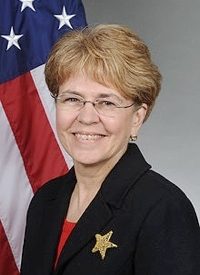
In contesting a federal effort to propel Washington’s environmental agenda, House Republicans nixed a congressional proposal to establish a new government program called the National Climate Service. Part of the National Oceanic and Atmospheric Administration (NOAA), and akin to the agency’s National Weather Service (NWS), the proposed division has been hailed by congressional Democrats as an essential federal service that would help inform farmers, insurance companies, and the general public of projected weather patterns. The central idea, Democrats and NOAA officials note, is that while the NWS provides short-term weather conditions, the National Climate Service would concurrently provide long-term projections of future climate-related events.
While Democrats contend that the service will require no new funding, a House Appropriations Committee news release indicated that Congress had saved $322 million in fiscal year 2012 by blocking the initiative.
The National Weather Service is one of six scientific agencies serving the NOAA and is tasked with offering to the public “weather, hydrologic, and climate forecasts and warnings for the United States, its territories, adjacent waters and ocean areas, for the protection of life and property and the enhancement of the national economy.” The NWS, formerly known as the Weather Bureau, draws from 122 local weather forecast offices and various national and regional centers to forecast temperature, humidity, probability of precipitation, wind direction and speed, and other weather-related data.
The concept of the climate service emerged during the presidency of George W. Bush, when proponents argued that demand for such information was expanding. Conrad Lautenbacher, Bush’s NOAA chief from 2001 to 2008, and groups such as the Reinsurance Association of America have championed the move. “It’s become clear that historic patterns of natural catastrophes — hurricanes, tornadoes, floods — are not good predictors of future risks,” averred Franklin Nutter, the President of the Reinsurance Association.
Likewise, NOAA administrator Jane Lubchenco (pictured above) told Congress earlier this year that requests from several industries for long-term weather data has augmented in recent months. Lubchenco alleged that the service would educate farmers on when to plant crops, as well as notify urban planners of potential increases in groundwater which could inflict structural damage as water flows below new construction. She also notified Congress that climate data extracted from NOAA websites has spiked by 86 percent, and email and phone calls regarding long-term climate data shot up from 26,000 to 30,000.
But Republicans and other critics assert that the NWS is often a mouthpiece for pushing the global warming agenda, and the establishment of the National Climate Service would only build the pulpit higher for politicians and climate scientists to hawk their climate timetables. “Our hesitation,” Rep. Andy Harris (R-Md.) contended during a June hearing, “is that the climate services could become little propaganda sources instead of a science service.”
At the same hearing, another prominent opponent of the move, Chairman of the House Committee on Science, Space and Technology Rep. Ralph Hall (R-Texas), said he acknowledged that “certain climate services can provide value,” but that the initiative would “severely harm vital research at NOAA.” In September, Hall launched a probe of NOAA, claiming that the agency was conducting “a shadow climate service operation” without legislative consent. So responding to the NOAA’s proposal, and its potential for publicizing environmental propaganda, Congress squelched efforts to create what the agency is branding as a “one-stop shop” for climate information.
But supporters of the initiative argue that climate change is a real threat that could precipitate a global environmental crisis. Of course, this assertion only solidifies the notion that the move is a ploy by politicians and climate scientists to hawk their environmental agendas. “There is a strong scientific consensus that climate change is happening and human activity plays a significant role,” alleged Rep. John Sarbanes (D-Md.), a key proponent of the service. “Yet the Republican leadership in Congress continues their reckless political stunt of climate change denial.”
The NOAA Climate Services Portal, a “prototype” service found at climate.gov, is furnished with sentiments that blatantly condemn human activity for hatching the negative by-products of global warming, as the “Latest News” section of the website currently broadcasts the following headlines:
- “Global temperatures 8th warmest on record for October”
- “Arctic sea ice continues to decline”
- “Greenhouse gas index continues climbing”
- “October warmer than average in the United States”
- “NOAA study: Human-caused climate change a major factor in more frequent Mediterranean droughts”
When the idea of the National Climate Service was reopened in February 2010, supporters explicitly advertised the program as a public guide for climate change, and not just as a resource for businesses and individuals to anticipate long-term weather conditions. “Even with our best efforts, we know that some degree of climate change is inevitable,” Commerce Secretary Gary Locke, whose department includes NOAA, said during the program’s announcement in February. “American citizens, businesses and governments — from local to federal — must be able to rise to the challenges that lie ahead. And that’s where NOAA’s climate service will prove absolutely invaluable.”
Indeed, to label the program solely as a portal for weather-related information is arguably a stretch. Observers predict that liberal politicians would use the program as a way to promote environmental policies and “green” investment projects while so-called climate scientists attempt to garner more grant money for their environmental endeavors.
All in all, it could be argued that the proposed National Climate Service is in fact a ministry of global warming propaganda.



